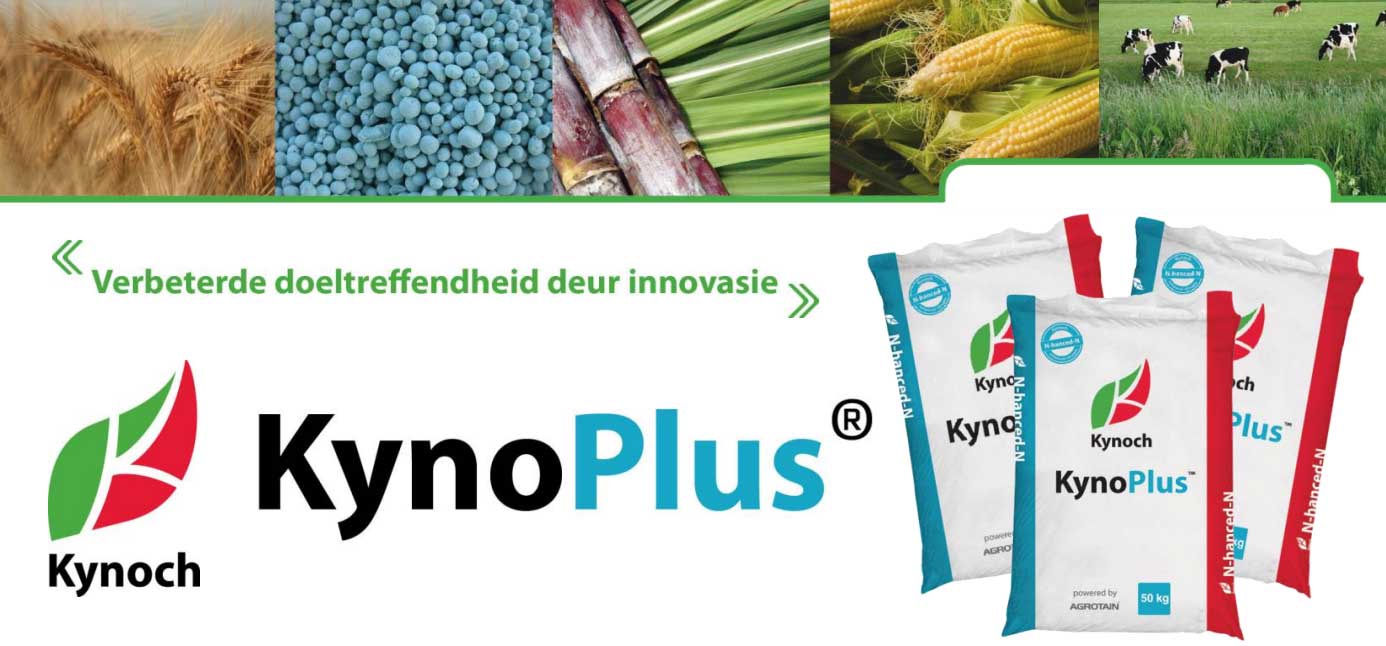By Editor (Mike) | Africa Contemporary Farmers Magazine
Nitrogen is the cornerstone of high-performing grain crops. It drives plant growth, supports photosynthesis, and is crucial for protein formation. Yet, despite its importance, a significant portion of applied nitrogen often escapes into the environment rather than being used by the crop. This is where nitrogen use efficiency (NUE) becomes critical — and how advanced products like Kynoplus Pro are changing the game for farmers.
Understanding Nitrogen Use Efficiency (NUE)
Nitrogen Use Efficiency (NUE) refers to a crop’s ability to convert applied nitrogen into harvested yield. In simpler terms, it’s a measure of how much of the nitrogen you apply ends up inside the grain you harvest.
In maize, NUE is usually between 30% and 50%, meaning up to half of your investment in nitrogen fertiliser could be lost.
NUE has two core components:
- Nitrogen Uptake Efficiency (NUpE) – the amount of nitrogen absorbed by the plant.
- Formula: NUpE = Total N in plant / Total N applied
- Nitrogen Utilisation Efficiency (NUtE) – the plant’s ability to convert that absorbed nitrogen into grain.
- Formula: NUtE = Grain yield / Total N in plant
Together, they form the overall NUE:
- NUE = NUpE × NUtE
What Affects NUE?
Numerous factors play into nitrogen use efficiency, from soil health to climate conditions to crop genetics. Here’s a quick breakdown:
- Plant Genetics: Some maize hybrids are naturally more efficient at absorbing and using nitrogen.
- Root System: Deeper or denser roots improve nitrogen uptake.
- Soil Characteristics: Texture, organic matter, pH, and cation exchange capacity (CEC) influence how well soil holds and supplies nitrogen.
- Climate: Rainfall can cause leaching, while heat and drought affect nitrogen uptake and soil microbial activity.
- Application Timing and Method: Applying nitrogen when the crop needs it most (e.g. side-dressing at V6–V8 stage) helps avoid losses.
- Technology: GPS-guided variable-rate application ensures precision.
- Farming Practices: Crop rotation, cover crops, and conservation tillage help retain nitrogen in the soil.

How to Improve NUE
Improving NUE isn’t just good for yield — it also reduces fertiliser costs and environmental impacts. Here are eight strategies that work:
- Split Applications: Apply nitrogen in stages rather than all at once.
- Use Enhanced Efficiency Fertilisers like Kynoplus Pro to minimise losses.
- Precision Application: Adopt GPS or variable-rate tech for targeted application.
- Plant Cover Crops: Capture and recycle unused nitrogen.
- Rotate with Legumes: Naturally increase soil nitrogen levels.
- Choose Efficient Hybrids: Some varieties are bred for superior NUE.
- Reduce Tillage: Preserve soil structure and organic matter.
- Soil Testing: Track nitrogen availability and fine-tune inputs.
Kynoplus Pro: The Smart Nitrogen Solution
Kynoplus Pro is an advanced urease inhibitor designed to keep nitrogen where it belongs — in your soil, ready for plant uptake.
Here’s how it enhances NUE:
- Reduces Volatilisation Losses: Keeps nitrogen in the ammonium form (NH₄⁺), which plants can use efficiently.
- Improves Uptake Efficiency (NUpE): Ensures more of the applied nitrogen reaches the plant.
- Boosts Yield per Unit of N Applied: Better efficiency means better return on investment.
- Provides Flexibility: Offers options for timing, rates, and application methods.
- Supports Sustainability: Reduces emissions and nitrogen runoff into waterways.
In essence, Kynoplus Pro helps you grow smarter, not harder — turning every unit of nitrogen into results you can see at harvest.
As fertiliser costs continue to rise and sustainability becomes a greater priority, nitrogen use efficiency is no longer optional — it’s essential. Products like Kynoplus Pro don’t just protect your nitrogen investment; they empower your crops to reach their full potential.
With improved management practices and innovative inputs, African farmers can increase yield, reduce losses, and grow more sustainably for generations to come.
This is a dynamically generated comment by Jack Taylor.